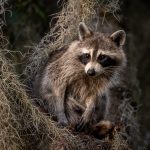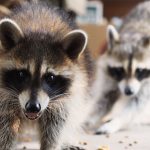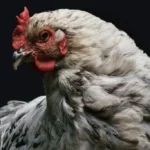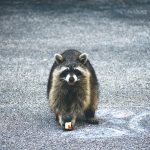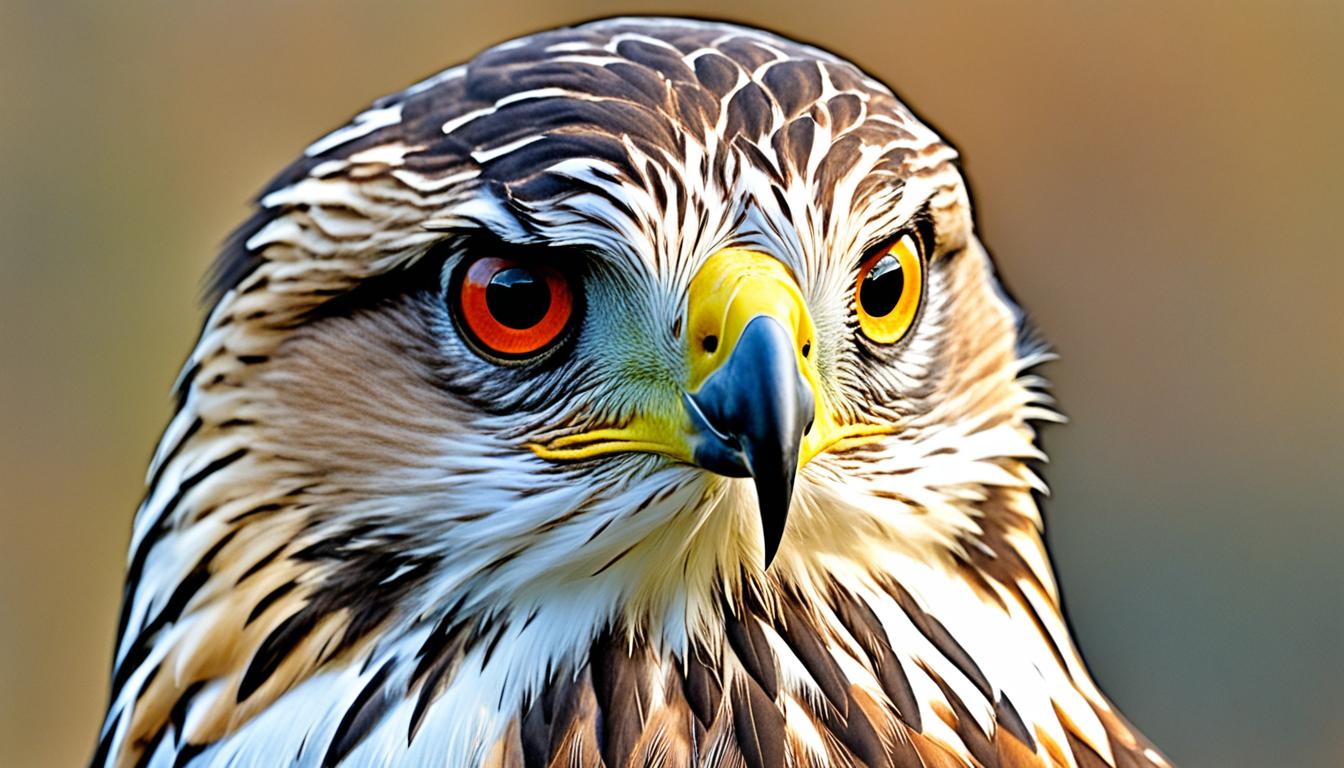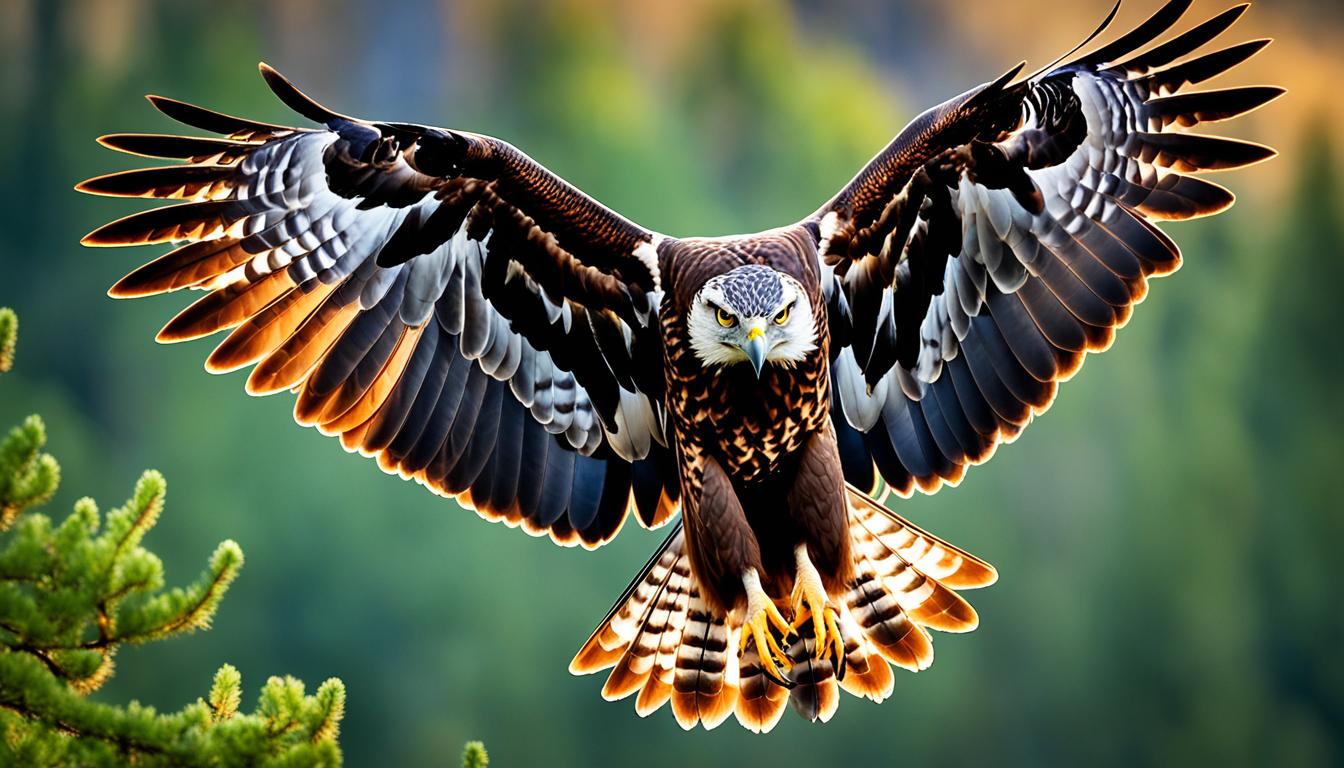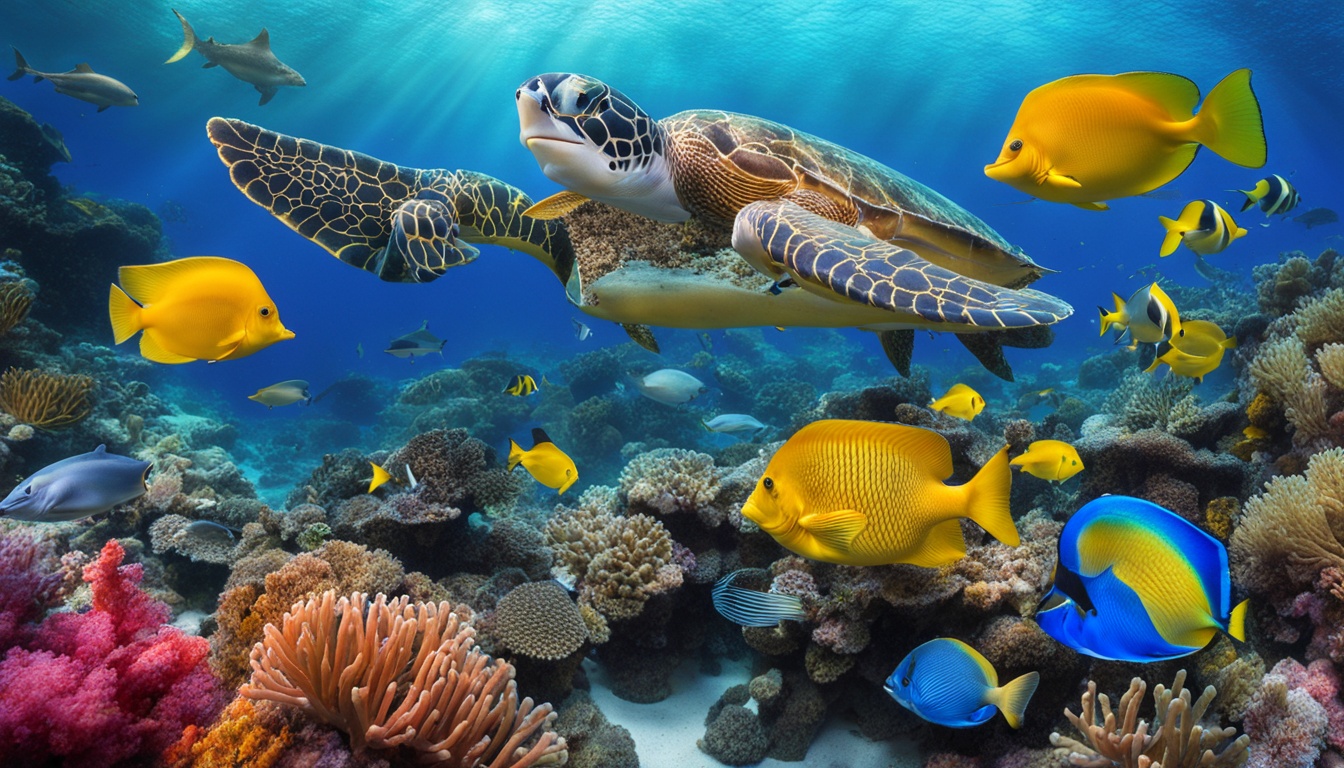Raccoons are often depicted washing their food by a river before eating – but they aren’t actually washing it. They are just deciding the best way to eat it.
Why Do Raccoons Wash Their Food?
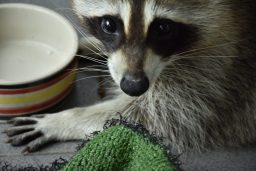
Raccoons have very sensitive hands (front paws) which are covered with a hard pad. This pad is packed full of sensory nerve endings allowing raccoons to feel in a way similar to sight. Just by feeling something – they can tell what it is and whether it’s worth eating. Anyway – this pad works best when wet – as fishing for food in streams and small rivers is where the raccoon made its fortune.
So, when they are on the bank of a river – paddling for food with their hands – they are really seeing underwater. Once they grab something worth eating they move it around in their hands a bit. Breaking or rubbing off parts they don’t want to eat looks a lot like washing. Their name in many many languages translates as little ‘washing bear’ as they were often seen manipulating food at the water’s edge before eating it. Even their species name Procyon lotor translates as: ‘doglike washer’.
Also called ‘dousing’ (to differentiate it from actual washing) this action is often seen repeated in zoos and private collections. When they are given food on dry land – many raccoons will carry it to the water’s edge to paddle it around a bit before eating. Many theories abound – but it was settled on that it is a natural behavior that the raccoons just like to do – the same as their ancestors did.
What Do Raccoons Eat?
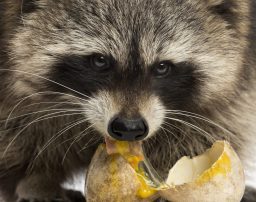
Just like their namesake bears – raccoons are omnivores. One of the best at it too – with a hugely wide variety of foods eaten. Basically, if they find it and can eat it – they will. And as discussed above – they mainly feed at the water’s edge.
Fish, crayfish, and amphibians are the staples in the waterways – and they will take mammals and birds too. But they love plant-based foods too with around 30% of their diet made up of things like fruit, berries, and nuts. They will also scavenge on human waste if it is easy pickings – and they totally love sweetcorn apparently?
Eggs are also a favorite – and not just bird eggs. They will eat reptile eggs too if they find them. They love raiding eggs so much so that if they stumble onto a regular nesting site they will raid it over and over. Quite a problem if they are on an island or are living close to endangered or vulnerable species. Just like rats – raccoons sometimes need to be totally eradicated from an area to protect the eggs.
Do Raccoons Catch Fish?
Due to the expertise in underwater hand-fishing – raccoons can and do catch fish in the water too. Their super-sensitive hands in the shallows on the edges of streams give them the prime position to catch fish who swim into their grasp.
Raccoons can’t swim and catch fish at the same time – they aren’t aquatic predators in that sense. They have to have their feet on the ground to catch fish. But if they can wade in the shallows or hang over a ledge into deeper waters – they can grab fish with their lightning-fast reflexes. The fish only needs to trigger a waft of water onto the sensitive hairs on the raccoon’s palms – and it’s a catch.
And they don’t just eat wild fish. If raccoons find a well-stocked garden pond with shallow sides or unprotected overhangs – they will – and often do – eat ornamental fish and other aquatic species. And just like with any good food source – the raccoons know to come back.
Are Raccoons Known for Climbing Trees?
Are raccoons known for climbing trees? Yes, raccoons are infamous for their tree climbing behavior. They are excellent climbers and can effortlessly ascend trees using their sharp claws and agile bodies. This adaptability allows them to access food, escape predators, and find safe shelter high above the ground. Raccoons’ tree climbing behavior is a remarkable skill that they possess in the wild.
Can Raccoons Swim?
Yes, they can – but they aren’t doing it for fun. Raccoons can stay afloat for some time – something that gives them the advantage in their habitat and when feeding. Moving from one bank of a river to another could open up a whole new menu due to the changing speed of the current for example. Swimming from the steep inner side of the bank to the more shallow outer edge could increase the wading space.
Often they enter the water as a means of escape if being chased by a predator or domestic dog – they know they can get to the other side easily. Their usual escape trick is to climb a tree though. Swimming across rivers may also increase their chances of finding a mate too.
Raccoons are wily little critters – and I wouldn’t put anything past them!

